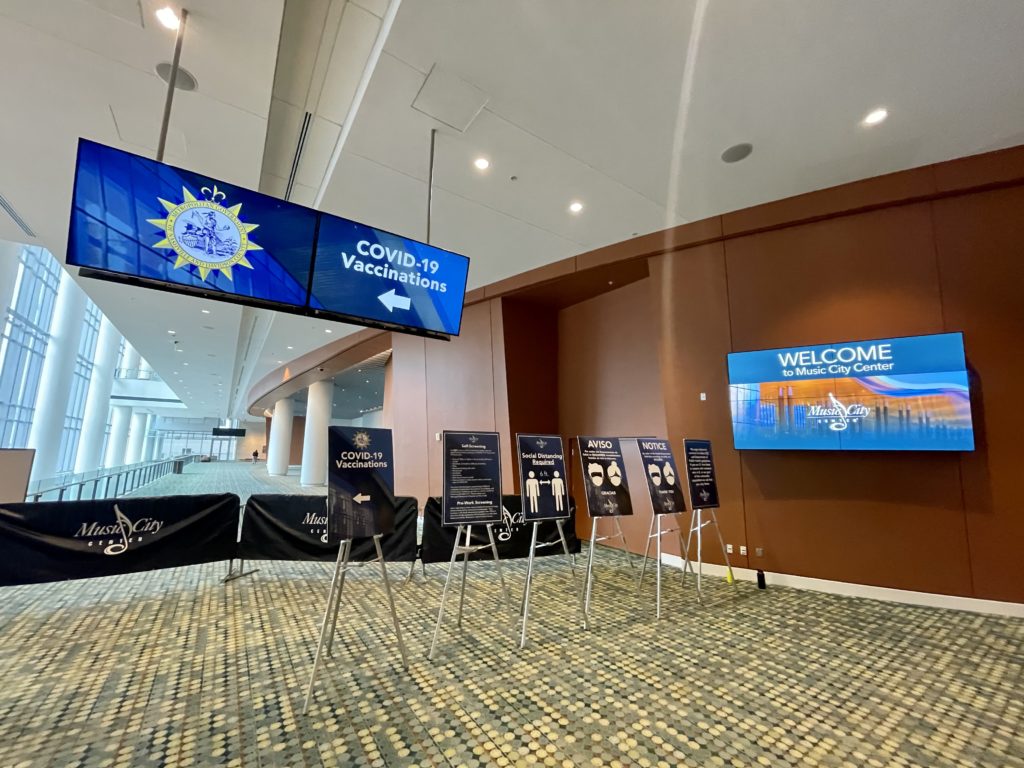
Nashville takes a big step toward opening vaccine access next week, for the first time inviting walk-ins to the Music City Center.
On Thursday, the Metro Public Health Department announced that for the first time, vaccine appointments have been going unfilled. The city has been giving about 2,000 shots a day at the convention center.
“We had planned at some point to be able to open it up to walk-ins,” says Dr. Gill Wright, the city’s medical director. “This just triggered that happening at this point in time.”
The first 500 people to arrive each day (between 9 a.m. and 3 p.m.) can receive the vaccine without an appointment starting on Monday. Currently, the site is using the two-dose Pfizer vaccine.
The transition toward appointment-less vaccination is one of the first signs that demand for shots is letting up in Davidson County, which has had stronger uptake than most of Tennessee.
Currently, just shy of 36% of Davidson County residents have at least one dose. The goal set by Mayor John Cooper is to get to 50% by May.
Full reopening appears imminent
As of Friday, Nashville restaurants and bars can stay open until 3 a.m. with increased capacity. Indoor gatherings with as many as 15 people are ok. The crowd sizes at sporting events and concerts can be slightly larger, as well.
Reopening Update:
Corresponding with over 30% of Nashville residents having received a vaccine, the following capacity increases go into effect on Friday.
Visit https://t.co/0pJXgPi0hQ to sign up to get your vaccine! #50by5 pic.twitter.com/LyKM9q111E
— John Cooper (@JohnCooper4Nash) April 14, 2021
Dr. Alex Jahangir, who chairs the city’s coronavirus taskforce, says the plan is to continue reopening, despite the presence of new COVID cases. He says public health’s mission is to curb disease through restrictions only when there is no alternative.
“We are now getting to the point with the vaccine that there is a readily available intervention that is available to anyone at anytime,” he said Thursday. “So I think as a matter of policy, we really need to start evaluating what that means.”
Increasingly, Jahangir says people who get sick would have had a way to avoid it.

